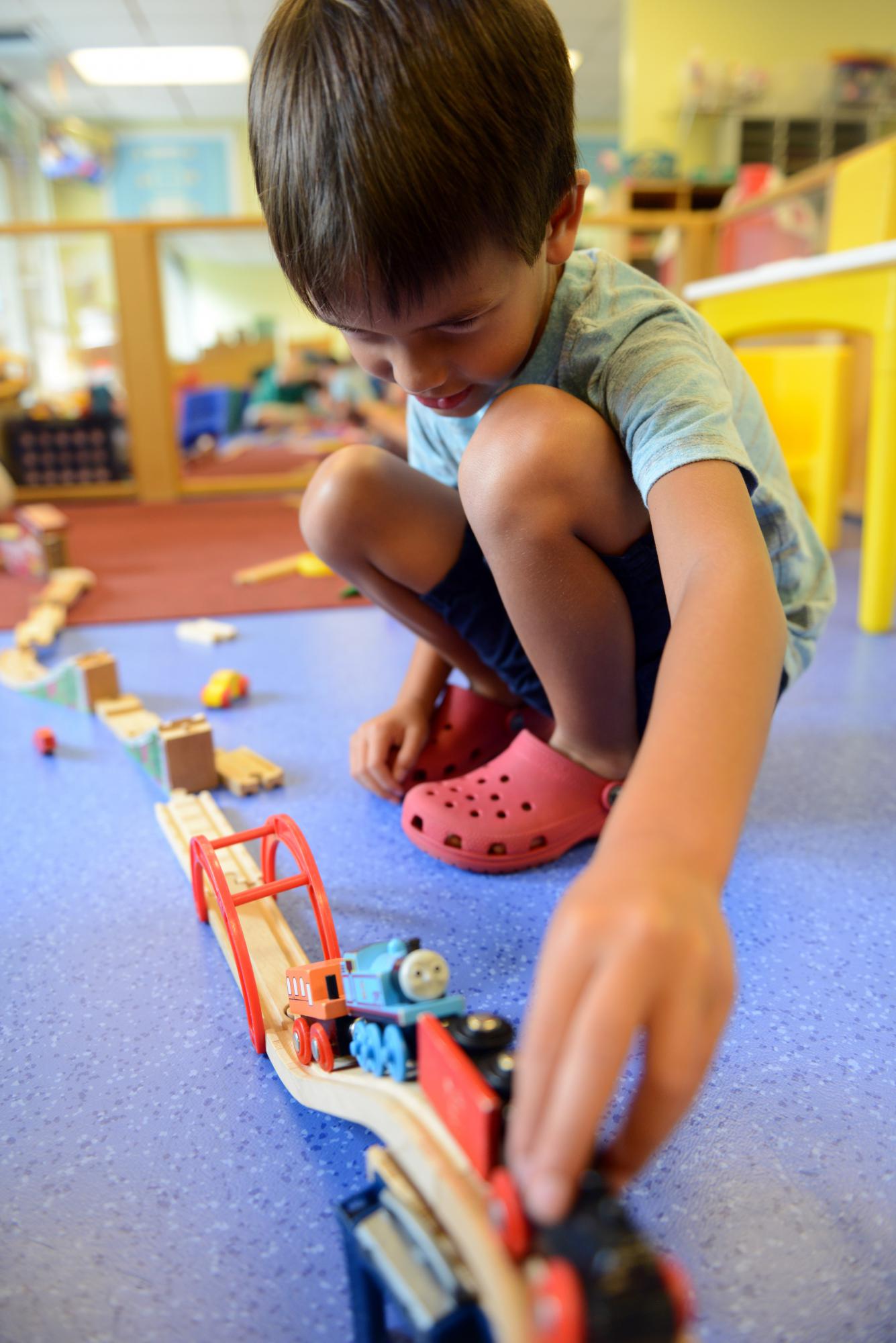
Collaborating at All Levels Leads to High-Quality Educational Experiences for Young Children
When building high-quality childcare and education programs for young children, researchers at the UNC Frank Porter Graham Child Development Institute point to the success of models that collaborate with underutilized community partners to bring in more resources.
Sandra Soliday Hong, PhD, research scientist at FPG, is lead author of "Broadening the Definition of Collaboration in Early Care and Education," which was recently published online in Early Education and Development. Noreen Yazejian, PhD, senior research scientist at FPG, is a co-author on the paper.
In the past, most literature has focused on how collaborations between schools and major partners such as Head Start and state-funded Pre-K lead to quality improvement for young children's educational programs. That view of collaboration is too narrow, says Soliday Hong, and this paper shows the benefits in broadening that scope.
"We know what makes an ideal preschool experience and that resources are an important part of creating high-quality early care and education," she says. "Developing collaborations with loca l agencies and partners such as local libraries, YMCAs or other groups should be explored."
l agencies and partners such as local libraries, YMCAs or other groups should be explored."
The authors evaluated the current body of peer-reviewed research and found that it does not include new ways of looking at collaborations in early childhood education and the resulting positive outcomes. Highlighting the ways others have opened up to new collaborations, the authors hope to expand how developmental scientists view—and value—these relationships.
This paper outlines the success of the Educare Learning Network, in which Educare schools, Head Start providers and other partners in research-based early childhood education work together to bring better educational opportunities to underserved children.
Educare schools are supported by both public and philanthropic partnerships and collaborations at various levels. The Educare Learning Network consists of 24 Educare schools within parent organizations—most of which are Early Head Start and Head Start grantees or delegate agencies—that collaborate with local school districts, researchers, philanthropists, advocates and policymakers to share information and learn from one another.
FPG is the national evaluation partner for the Educare Learning Network's implementation study.
"We see areas where schools are struggling to find resources for kids with disabilities, and they find a funder who has connections to the local services they need," says Soliday Hong. "We believe these kinds of collaborations contribute to kids’ experiences, and we should be documenting those and learning from those."
Soliday Hong says she hopes practitioners can use this information to advocate for collaborations at all levels of an early childhood system. "We need more research to truly identify and measure these collaborations at every level so that we can begin to look at what it means to collaborate, and what kinds of outcomes these collaborations bring, in a much broader way."